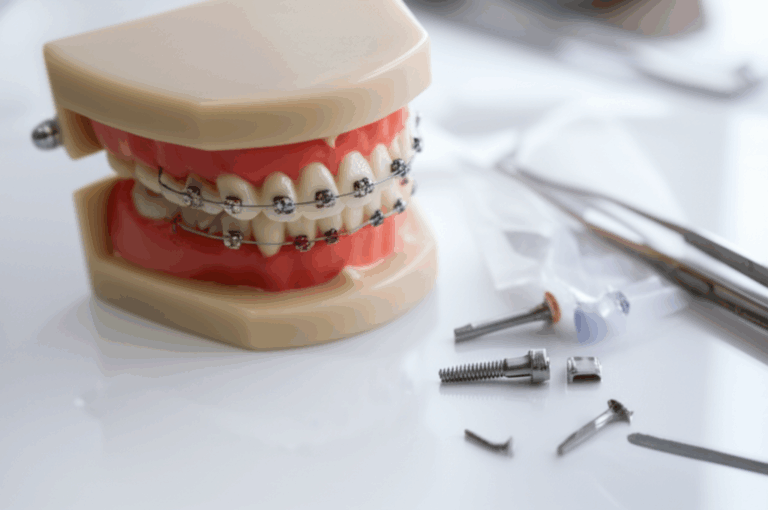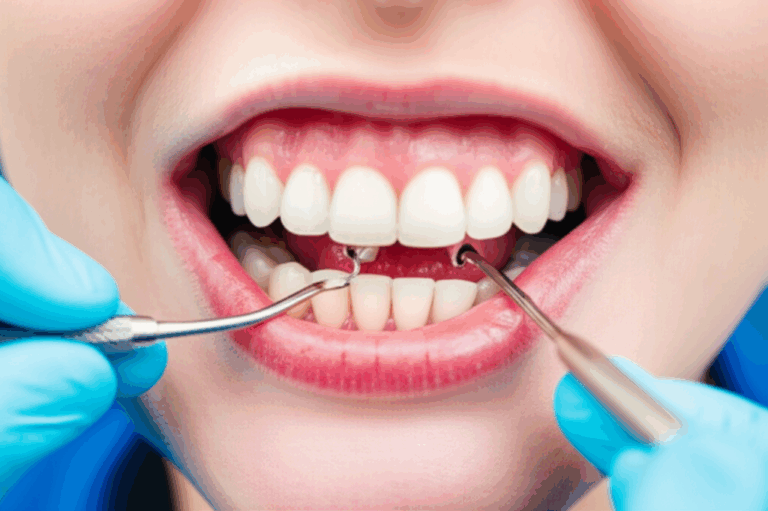
How to Choose the Right Dentist for Your Dental Implants: A Comprehensive Guide
A bright, healthy smile can change your life—and dental implants are one of the best ways to get there. But here’s the thing: the real success isn’t just the implant. It’s choosing the right dentist to do the work. In this guide, I’ll walk you through how to pick your dental implant provider, share useful advice, and help you avoid common mistakes so you can invest in your smile without worry.
Table of Contents
1. Introduction: Why Picking Your Implant Dentist Matters
Let me start with a story. Imagine you pay a lot to get dental implants, only to find pain, high bills, or a smile that doesn’t look right. That’s the real risk if you pick just any dentist. The right dentist can mean the difference between a big problem and a happy ending.
Why read this article? Because this choice is just too important to guess. If you want implants that look good and last, you should know what matters when picking your dental implant dentist. Let’s get started.
2. What Are Dental Implants and Why Do People Get Them?
Dental implants are small metal or ceramic posts put in your jawbone. They act as the root of a missing tooth and hold crowns, bridges, or false teeth. You might want dental implants if you want strong teeth that won’t move or get cavities.
Benefits of Dental Implants:
- They look and feel like real teeth.
- You can eat, talk, and smile without worry.
- Implants stop bone loss, so your jaw stays strong.
- With good care, they can last your whole life.
Choosing a skilled implant dentist helps you get these benefits—without the problems.
3. Who Can Place Dental Implants? Understanding Specialists
Not all dentists are the same. Here’s who might do your implant.
General Dentist
Some regular dentists put in implants. If your case is easy and they’ve taken some special courses, this might be okay. For bigger problems, you’ll want a specialist.
Oral & Maxillofacial Surgeon
These are experts for tough cases—like fixing bone or sinuses. With extra years of surgery training, they know how to handle hard jaw problems.
Periodontist
Have gum issues? Periodontists know all about gums and the bone around them. They’re good if you have gum disease or not enough bone.
Prosthodontist
A prosthodontist is the expert at making your new teeth look and work right. They do full-mouth fixes and make sure your teeth fit well.
The Team Approach
The best offices have a team: a surgeon to put in the implant, a prosthodontist to make the new tooth, and hygienists to keep things clean. This team often gets the best results.
4. What Qualifications and Experience Should Your Dentist Have?
You wouldn’t let just anyone fix your car—or your teeth. Look for these things:
1. Education & Training
Dentists need more than just a school degree. Look for extra courses in implants from groups like the American Academy of Implant Dentistry (AAID) or International Congress of Oral Implantologists (ICOI).
2. Certifications & Associations
If your dentist is a member of AAID, ICOI, or the American Dental Association (ADA), it shows they care to keep learning.
3. Years of Experience & Number of Cases
Experience matters. Dentists who put in more than 50 implants a year usually do better. Ask how many cases they’ve done—easy and hard cases.
4. Continuing Education
Implant tools and methods change fast. Does your dentist keep training? Do they go to classes and events?
5. Success Rate
Good dentists don’t mind sharing their success rate for implants. The best have rates around 95-98%. Don’t be afraid to ask about this.
5. What Technology and Tools Should a Good Dental Clinic Use?
Better tools mean safer, better implants. Here’s what your dentist should use:
1. 3D Imaging (CBCT Scans)
With 3D x-rays, dentists can see your jaw really clearly and put implants in the right spot. A clinic without this could miss problems.
2. Guided Surgery
Now computers can help plan and guide the dentist while placing the implant. This lowers risk and helps your new tooth fit just right.
3. Digital Workflow & In-House Labs
A clinic with digital scanners and an in-house dental lab means you wait less, have fewer errors, and get better teeth made just for you.
4. Sterilization Protocols
Ask how they keep things clean. Good offices have strong cleaning rules to stop infections.
5. Sedation Options
Nervous about pain? Good clinics offer choices from numbing shots to IV medicine so you can relax.
6. What Should You Expect in Patient Care and Environment?
You’ll feel you’re in the right place when the office is clean, workers are nice, and you feel heard.
1. The Consultation
A good dentist takes their time. You should get a full mouth check, time for your own questions, and a plan just for you. Watch out if they rush you.
2. Clear Communication
Think, “Did the dentist answer my questions? Did I understand my choices?” If not, keep searching.
3. Patient Reviews and Before & After Photos
Look for real reviews from other implant patients. The best offices show before & after pictures—so you can see their real work.
4. Post-Op Care and Follow-Up
Will they check on you after surgery? Good clinics have clear aftercare and are easy to reach for questions or problems.
Pro Tip: Read honest patient reviews or feedback, and walk around the office to check if it’s clean and the staff are friendly.
7. How Much Does a Dental Implant Cost and What About Insurance?
Let’s be honest: implants can cost a lot. But what you get matters more than just the price.
Understanding the Total Cost
One implant is more than just the post. Here’s what you may pay for:
| Service | Estimated Price Range |
|---|---|
| Implant Post | $1,000 – $3,000 |
| Abutment | $500 – $1,000 |
| Crown/Tooth | $1,000 – $2,000 |
| Bone Graft (if needed) | $500 – $2,500 |
| CBCT Scan | $150 – $500 |
| Consultation | Sometimes Free or $100 – $300 |
You might need more work—like a sinus lift or a custom crown. Always ask for a full, written price before you say yes.
Insurance, Financing, and Guarantees
Many plans don’t pay for implants but may help with taking teeth out or crowns. Ask if the office can help with your claims. Some offices have payment plans or work with finance companies.
Don’t forget to ask if anything is covered by a warranty—just in case.
8. What Red Flags Should You Watch Out for?
If you see these signs, be careful:
- Pushy sales or pressure to sign up fast.
- Prices that look way too cheap.
- Hidden or unclear costs.
- No new equipment like 3D x-rays.
- Many bad reviews—or almost none at all.
- Dirty office or rude staff.
- No proof the dentist knows how to do implants.
If you notice any of these, keep looking for a better dentist.
9. What Questions Should You Ask at Your Consultation?
When you visit, don’t be shy. Here are some smart questions:
A good dentist answers all your questions and is honest about it.
10. Your Easy Checklist for Choosing the Best Implant Dentist
Here’s a cheat sheet:
- Check credentials: Are they members of AAID, ICOI, or ADA?
- Ask about experience: How many implants have they placed?
- Look at their tools: Do they use 3D x-rays and computer-guided surgery?
- Read patient reviews: What have others said?
- Visit more than one dentist: Always get a second opinion.
- Ask for a clear cost: Make sure it covers everything (implants, abutment, crown, x-rays, and bone grafts).
- Know about aftercare: Check that you get follow-up visits and help afterward.
11. FAQs About Dental Implant Dentists
Q: Is a normal dentist okay for dental implants?
A: For simple needs, maybe. But experts like oral surgeons and prosthodontists have extra training for hard cases.
Q: How long do dental implants last?
A: With good care, over 20 years—sometimes for life.
Q: Are dental implants safe?
A: Yes. With a healthy patient and skilled dentist, implants work about 95-98% of the time.
Q: What are the risks?
A: Like any small surgery, you could get an infection or it might not work—this is more likely if your dentist isn’t very skilled or you have health problems.
Q: Will it hurt?
A: Most people say it hurts less than they thought. Numbing and proper care help a lot.
12. Key Takeaways
- Do your homework. Check your dentist’s experience and training first.
- Ask questions. No good expert will mind.
- Don’t just pick by price. Cheap work may cause big problems later.
- Look for new technology. 3D x-rays and guided surgery make things go better.
- Read real reviews. What others say matters.
- Trust your feelings. If something feels odd, keep looking.
- A good team and clear aftercare matter a lot.
- Good dental labs are important. Using a digital dental lab helps get better, custom teeth and happier patients.
Choosing a dentist for implants is really an investment in your health, your happiness, and your confidence. I hope these tips help you get the smile you want for years. If you need to learn more or want help with the steps or materials, resources like a china dental lab can give you more info, better parts, and support for your dentist.
Stay smart, choose carefully, and get ready to love your new smile!








